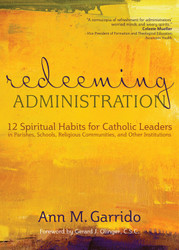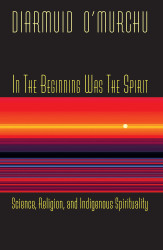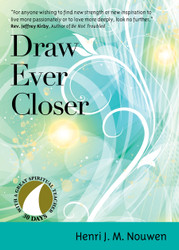Is it possible to be spiritual without being religious? Can spirituality be separated from "the complications of religious institutions"? Convert and theologian Reid Blackmer Locklin thinks not. Combining personal experience with insights from Hindu and Christian traditions, Locklin offers a highly personal guide to religious commitment in a world characterized by religious pluralism. Locklin demonstrates, through his “spirituality of institutional commitment,” that a religious institution is simply a meeting point of spiritual seekers and teachers, which is both natural and indispensable when seeking holiness. Both an invitation and response, Locklin's guide is informed by ancient sources as well as contemporary experience. Spiritual but Not Religious? offers a fresh and personally engaging view of the Christian Church as a raft—not an obstacle—on the journey to the farther spiritual shore.
| Format: | Paperback book |
|---|---|
| Product code: | LP3003 |
| Dimensions: | 6" x 9" |
| Length: | 152 pages |
| Publisher: |
Liturgical Press
|
| ISBN: | 9780814630037 |
| 1-2 copies | $12.27 each |
|---|---|
| 3-9 copies | $11.71 each |
| 10-49 copies | $11.16 each |
| 50-99 copies | $10.88 each |
| 100+ copies | $10.46 each |
Praise
This book is a timely read especially in the climate of intolerance of the `other' that we experience in our world today.
Reid Locklin addresses his book to readers who are suspicious of organized religion. He eschews neatly packaged answers to the question of institutional commitment, and instead narrates elements of his own passage from religious dabbler to membership in the Roman Catholic Church and participant in interreligious dialog. He interweaves his story with readings and reflections on the Gospel of John, the teachings of Augustine of Hippo, and the eight-century Hindu teacher Adi Shankaracharaya. The result is a lively and inviting conversation that responds to the concerns of a new generation of religious seekers in a way that is `allusive and personal-a soft porch light, left shining to welcome late arrivals inside rather than to demand of them where exactly they have been.'
This writing, as both an invitation and a response, offers a fresh view of the Christian Church as a raft rather than an obstacle on the journey to the farther spiritual shore.
The book is an eloquent apology for personal commitment to a religious institution as an essential part of spiritual life, for being spiritual and religious.
Have you heard some young people say with all good intentions that they are spiritual but not religious? Author Reid B. Locklin details his thoughts on the journey toward commitment in Spiritual But Not Religious? An Oar Stroke Closer to the Farther Shore. By drawing primarily on Hindu and Christian tradition he offers a `credible spirituality of institution commitment' as he talks about his experience as a convert.
Drawing upon his experience, as well as wisdom rooted in the Hindu and Christian religious traditions, Reid Locklin offers a thinking person's guide to commitment in a world characterized by religious pluralism.
A profound contemplation and mediation of differing specifics in pursuit of a general goal-reverence and love for the Divine.
This is narrative theology at its best. Reid Locklin's journey as a seeker is relentlessly honest, theologically astute, and spiritually enlighteningand full of grace.
Spiritual but Not Religious? is a remarkable autobiographical accountan interim report from a seeker still on the questin a great tradition as old as St. Augustine and as modern as Dorothy Day, Thomas Merton, and Mohandas Gandhi. Erudite yet transparent, Locklin renders his own personal journey to faith likewise a path to the crossroads of the spiritual and religious, the Hindu and Christian, the world's oldest traditions and the experience of a young Catholic and his still younger students today.
This modern day Confessions would impress Augustine himself. Here Reid Locklin demonstrates again the power of a great conversion narrative. An inspiring story for these post-modern times.
This beautifully lucid first person account of a GenX journey to faith, institutional commitment and inter-religious dialogue is completely engaging. With Shankara, Augustine and the Fourth Gospel as travel companions, the conversation is rich, provocative and illuminating. The attractive simplicity of style makes profound issues accessible for a wide audience. It is a worthy read.
In this engaging and insightful book, Reid B. Locklin articulates and defends what he calls, in a characteristically eloquent phrase, a spirituality of institutional commitment.' Looking at his own Roman Catholic tradition in light of the guru-disciple tradition in Vedantic Hinduism as a way of highlighting the role of personal relationships in his own spiritual journey, Locklin describes how a commitment to the shared narrative of a religious tradition provides a way of integrating the disparate episodes of personal experience into a meaningful whole, crystallizing in a life-transforming moment of clarity. The theological reflections in this book, inspired by sources ranging from the New Testament to contemporary popular culture, should resonate especially with younger generations of spiritual seekers.
Author
Reid B. Locklin, PhD, teaches in the Christianity and culture program at Saint Michael’s College and the University of Toronto. His research publications include ventures into comparative theology and inter religious dialogue, as well as Christian ecclesiology.








